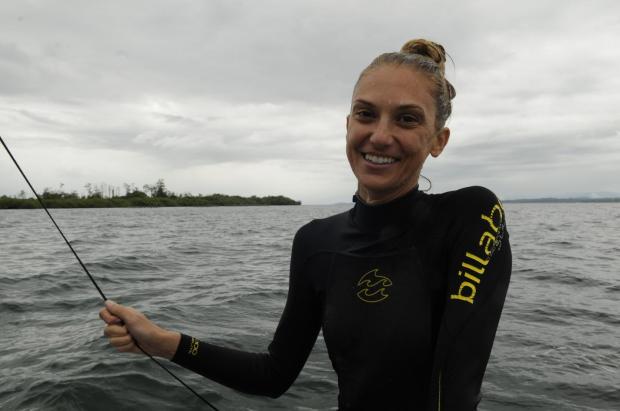Several years ago Katie Cramer, Dick Norris and I hatched a plan. We knew that the sediments on coral reefs preserved the robust teeth of fish and we guessed that the branching corals of the reef would hold it all in place. We just needed a way to extract the layers of reef sediments to reconstruct the history of fish communities on the reef.
Katie led the project with support from MarineGEO and Dick built a pushcore/vibracore hybrid, with which we managed to extract a good number of 3-4 metre long cores from coral reefs in Bocas del Toro, Panama.
Back at Scripps Katie led the troops to split the cores, take samples along them and extract the teeth from the matrix by acid digestion of the carbonate sediments. Sounds easy?
Then she had to identify what all these teeth were. Along with the team in Norris’ lab, and help from our lab in Panama, she built a reference collection of coral reef fish teeth, which turn out to be variable in shape, but on the whole extremely well-preserved over millennia.

We needed to date the cores, that’s where Jian-xin Zhao at University of Queensland came in. There we were able to date small pieces of coral using the U-Th dating technique which gave really high-resolution dates, and more importantly showed that the chronology of the cores were intact – i.e. there had been no mixing up and down which would have ruined any attempt to explore changes through time.
Our cores from Bocas stretched back 3000 years or so, and one of the most abundant teeth that Katie found was the various teeth produced by parrotfish.
Using the dates of the samples to calculate reef accretion rates we discovered that as the reef was growing it did so at a faster rate when there were more parrotfishes. This results shows that the benefit of parrotfishes for the health of the reef is always high, not only in the degraded habitats of today but also on “near-pristine” reefs which were much less fished.

The fossil record is a powerful tool to reveal ecological processes that have direct implications for conservation. And parrotfish conservation must be made a priority for the recovery and persistence of coral reefs.
